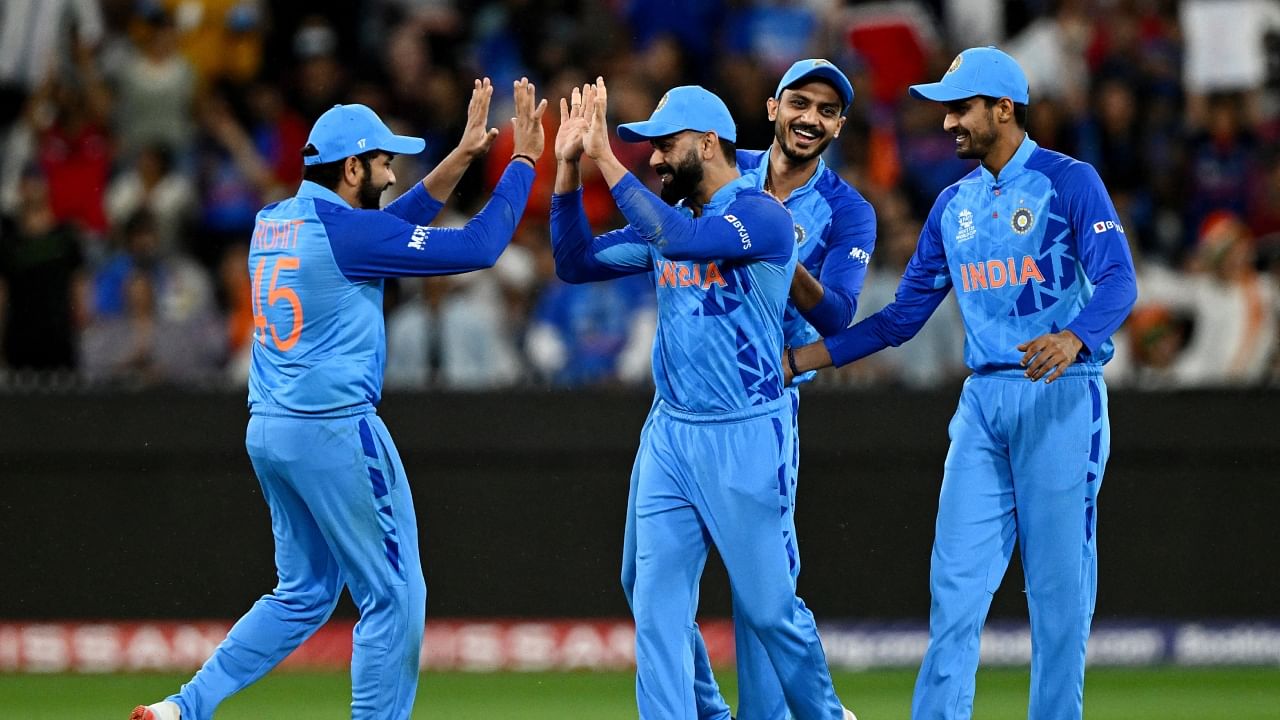
Rohit Sharma sauntered into the press conference room, a half-smile playing on his lips, his eyes flitting around as he soaked in faces familiar and strange. As he sat patiently, answering questions incisive and inane, he looked completely at peace with himself, unmindful of either his own middling form or the imminence of the T20 World Cup semifinal against England.
The Adelaide Oval will transform into Rohit and India’s theatre of dreams on Thursday night as they seek to make it to the final of this competition for the first time since 2014. In inarguably the most significant encounter of Rohit’s captaincy career, India have the added motivation of keeping their hopes of a first global title since 2013 alive, though there was no evidence of the weight of either of these possibilities sitting heavy on the skipper’s shoulders.
Since linking up with Rahul Dravid a year back, Rohit and the head coach have realigned the team’s approach to their common vision. At the same time, they have been pragmatic enough to espouse the need for adaptability and smartness, traits that have been notably visible during India’s league campaign when they had to shelve their aggressive designs up front in deference to the demanding batting conditions.
Despite being forced into a paradigm shift from their batting philosophy of the last year, India haven’t been found wanting. There’s enough experience and skill within the ranks to be able to suss conditions and bat accordingly, and even though there has been a marked dependence on Virat Kohli and the effervescent Suryakumar Yadav, India have been able to coax other batsmen to play crucial supporting roles to the magnificent duo.
Against an England side that is an acknowledged T20 powerhouse with depth and vibrancy in batting and quality and versatility in bowling, India can’t afford to be at less than their best. Kohli and Suryakumar will be the bulwarks, given their form, but there’s no more opportune time for Rohit to shake off the cobwebs and leave his imprint on the tournament. On Tuesday, Ben Stokes referred to him as ‘one of the great players of our era’; a timely reminder of why he is so highly regarded by opponents of all hue won’t be out of place, given that this will be last chance saloon for one of these sides.
India’s campaign hasn’t been short on drama. It took a mini-miracle from Kohli to fell Pakistan in their opener – was that in this same lifetime? – and they needed to dig deep to overcome a feisty challenge from Bangladesh at the same venue a week back, which means they have had recent taste of bouncing back from the ropes. England’s campaign has been equally undulating, marked by a shock loss to Ireland, a washout against Australia and a nervy, leaden-footed conquest of Sri Lanka on Saturday which guaranteed them a place in the semis.
England were the pioneers in reshaping the contours of T20 batting with their hell-for-leather approach but like India and all other teams, they have been forced to revisit their approach simply because the fresh tracks at different venues have fettered stroke-production. In Jonny Bairstow’s injury-enforced absence, there is a certain fragility to their batting that first Ireland and then Sri Lanka exposed, and had it not been for a timely return to run-scoring ways of Ben Stokes last weekend, there might have been a different tale to tell.
Having used only 11 players thus far, England could be forced into their first change of the World Cup following a groin injury to Dawid Malan. How that will alter the dynamics is open to debate, but India won’t cast more than a cursory glance at the opposition, given their inward-looking propensity with emphasis on what they must do rather than worry about who is stacking up against them.
A clear evening and a packed gathering are the perfect backdrop against which two of the modern-day gladiators will gear up for action. Only time will tell, though, whether this devolves into a long drawn out, cagey battle for supremacy.
(The writer is a senior cricket journalist)